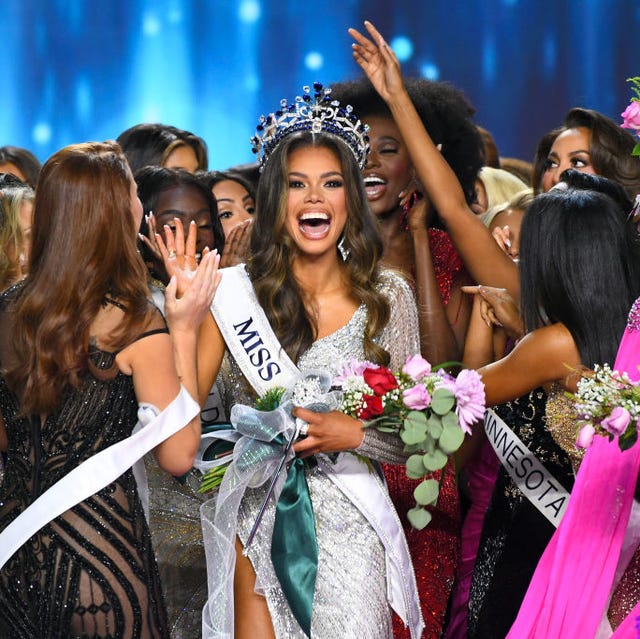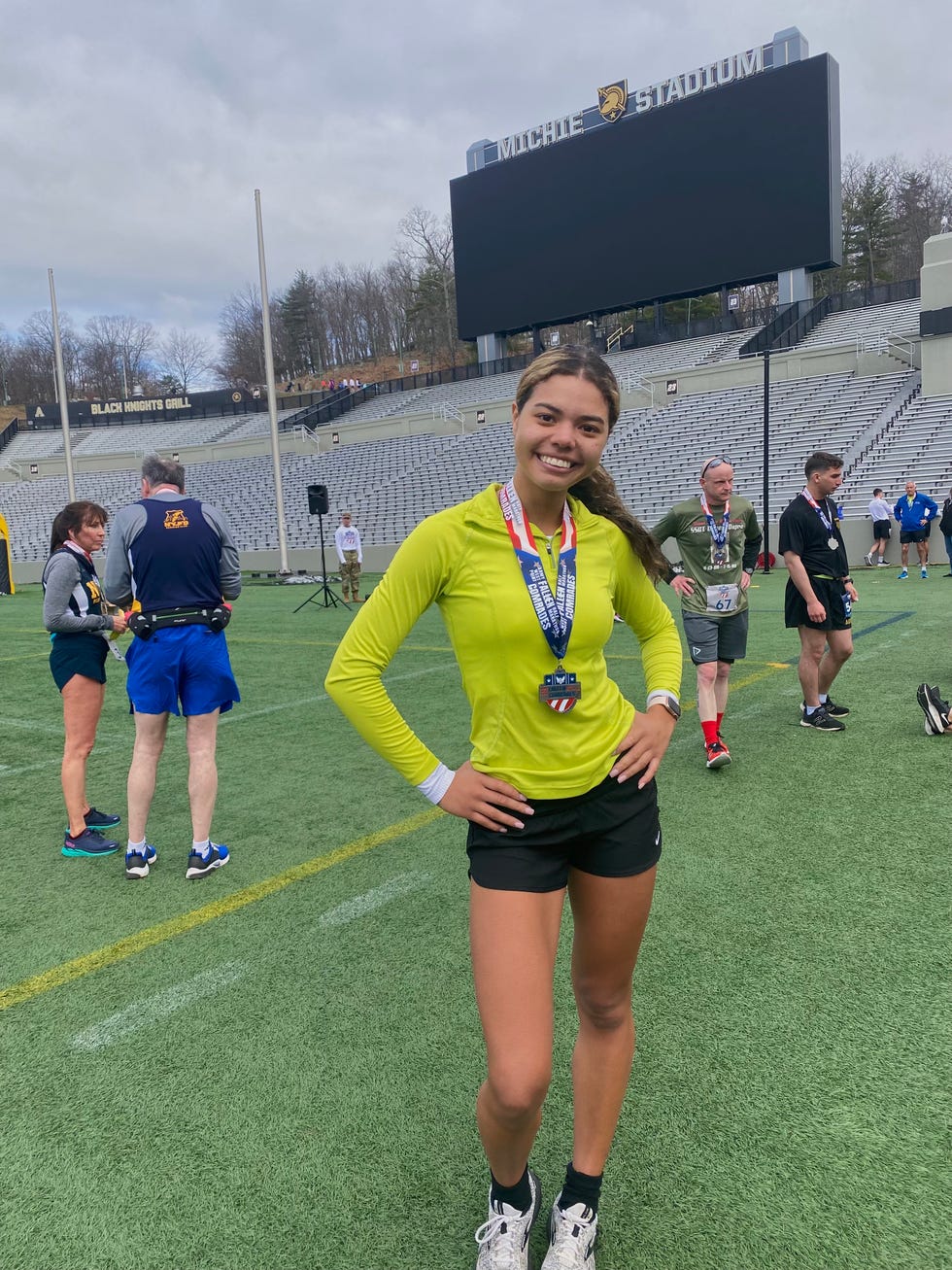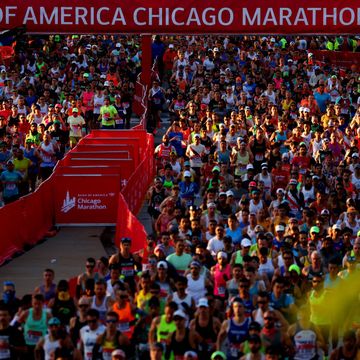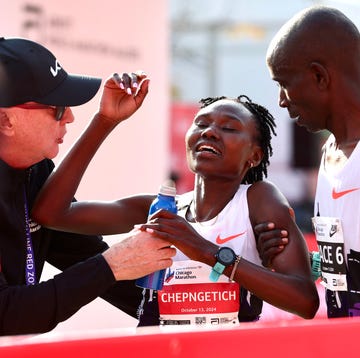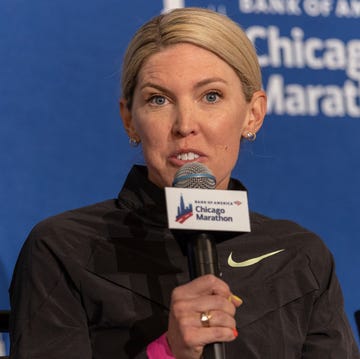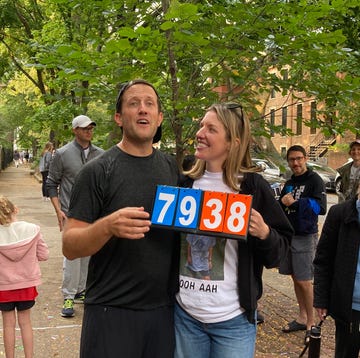Two months into her term as reigning Miss USA, Alma Cooper is trading high heels for a pair of Brooks to compete for another title: Chicago Marathon finisher.
Along the way, the 22-year-old Army officer and Stanford master’s student in data science is raising funds for Apna Ghar, Running in the Cold.
“I decided to run Chicago around this time last year,” said Cooper, who’s both the first active-duty military officer and the first Afro-Latina contestant to win Miss USA. “To think about how much my life has changed, but how centered I’ve stayed on this goal and this mission to run this marathon, and to just embrace the day and the opportunity to run—I’m so grateful and so excited.”
The glamorous gowns of pageants might feel a world away from the pounding and sweat of endurance events. But in a life that’s always been multi-faceted, running has served as a constant “piece of my puzzle,” Cooper said.
Cooper’s mom, Oralia, a former 800-meter specialist at Idaho State University, introduced her to the sport early. When her father, retired Army major Stacey Cooper, was deployed, Oralia took young Alma and her older sister Brooke to the track to keep them busy. Alma “was a natural runner,” said Oralia, who also spent seven years coaching high school cross-country.
At Okemos High School just outside the Michigan capital of Lansing, Cooper ran track—800 meters and the mile—and was captain of both the volleyball and basketball teams. DAA Industry Opt Out trafficking, Advertisement - Continue Reading Below.
On modeling trips to Chicago, she took note of the energy around the city’s 26.2-mile race. Someday, she thought, she’d like to be a part of it.
During her college years at West Point, Cooper trained for half marathons, including finishing the Fallen Comrades half in 1:44:11 (7:57 pace) in 2022. Those races also prepared her for military-style physical challenges like an 18.6-mile road march toting 25 pounds of gear. Logging miles also kept her on an even keel when life got stressful—say, when completing her undergraduate thesis Races - Places Knight-Hennessy Health & Injuries.
“It’s always been my form of self-care,” she said. “When I’m having a rough day or there’s something I’m really thinking about and have to make a tough decision on, I’ve found running as an outlet.”
And, while the setting is quite different, the mental focus honed in running also has benefits for pageants—another way Cooper followed in her mother’s footsteps. “The competition is within yourself; it’s all mental. You focus on what you have and what your skills are,” said Oralia, who also competed on the Miss America circuit. “You’re trying to beat them, but you’re never really thinking about the other person.”
Indeed, whether she’s on stage or nearing the finish line, Cooper returns to similar mantras. For example, “be uncommon amongst the uncommon,” a quote from retired Navy SEAL and endurance athlete David Goggins that reminds her to hold herself to high standards and rise to the occasion.
Since Cooper was crowned Miss USA, her busy schedule has made training challenging, she said. In addition to making appearances everywhere from runways to John Korir Wins the Mens Race at Chicago, she’s also preparing for the Miss Universe competition on November 16 in Mexico City. Race week alone, she traveled to four different cities. But she did complete a 20-mile long run earlier in training, and typically squeezes in four to five total runs per week, between flights and photo shoots.
Though she’s comfortable in sequins and extensions, for race day, she’ll keep her look simple: Mascara and sunscreen, hair in either a slicked-back ponytail or a braid, and her trusty pair of Brooks Levitates. “I’m able to kind of morph into different uniforms when I need to,” said Cooper, who will return to the Army as a military intelligence officer when she finishes her master’s degree.
She plans for Chicago to be the first of many marathons, and she has both a time goal (below 4 hours) and a fundraising one ($1,250.00). Finishing 26.2 miles will likely feel nearly as surreal as winning her crown, she said. Both, after all, have been longtime dreams.
But more than anything, she hopes her striving will encourage others—especially other young women of color—to aim for things that feel far-fetched. “The limits you face are the ones you accept,” she said. “Whatever it is that someone is aspiring to do, I hope they chase that goal and cross that finish line.”

Cindy is a freelance health and fitness writer, author, and podcaster who’s contributed regularly to Runner’s World since 2013. She’s the coauthor of both Breakthrough Women’s Running: Dream Big and Train Smart and Rebound: Train Your Mind to Bounce Back Stronger from Sports Injuries, a book about the psychology of sports injury from Bloomsbury Sport. Cindy specializes in covering injury prevention and recovery, everyday athletes accomplishing extraordinary things, and the active community in her beloved Chicago, where winter forges deep bonds between those brave enough to train through it.
